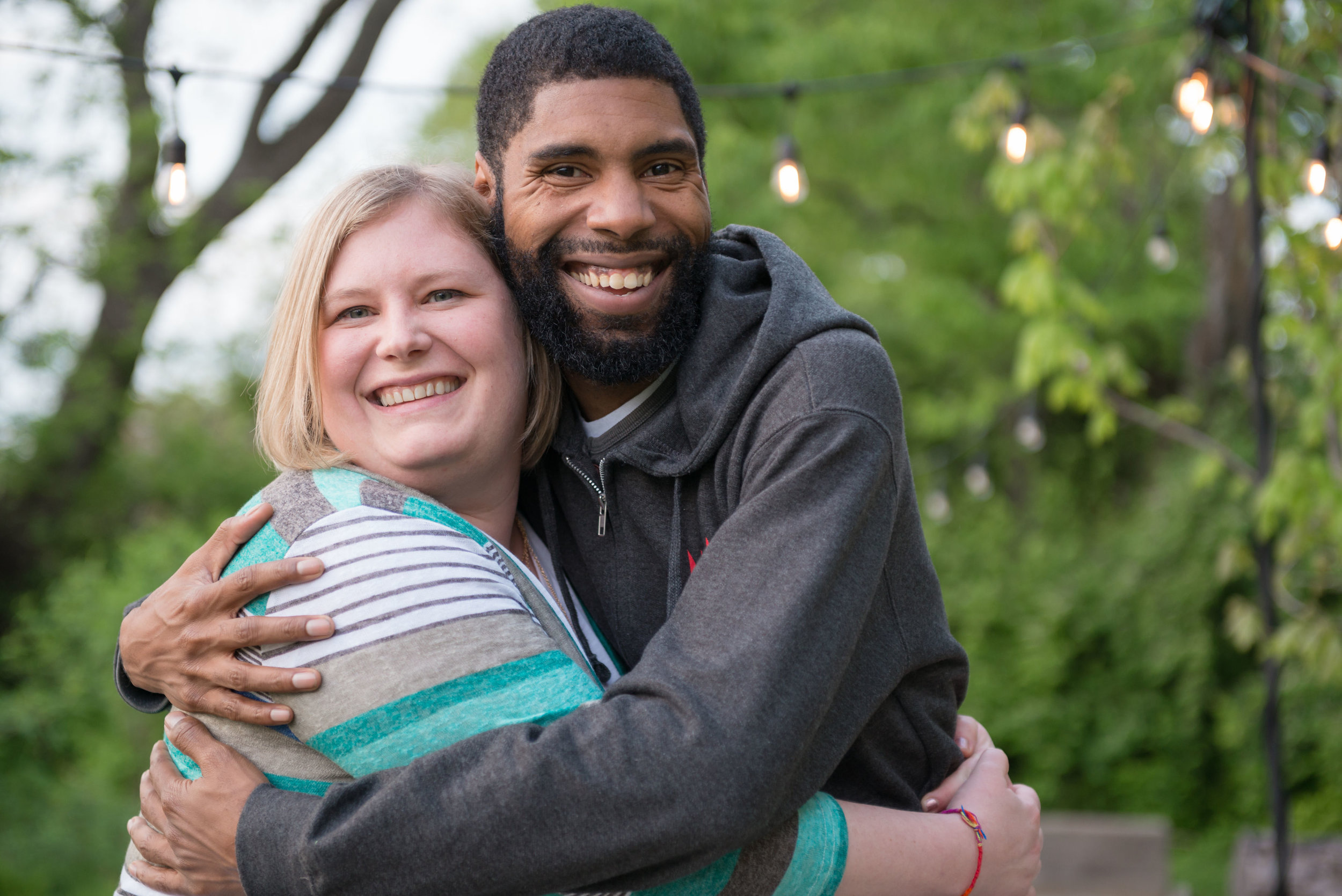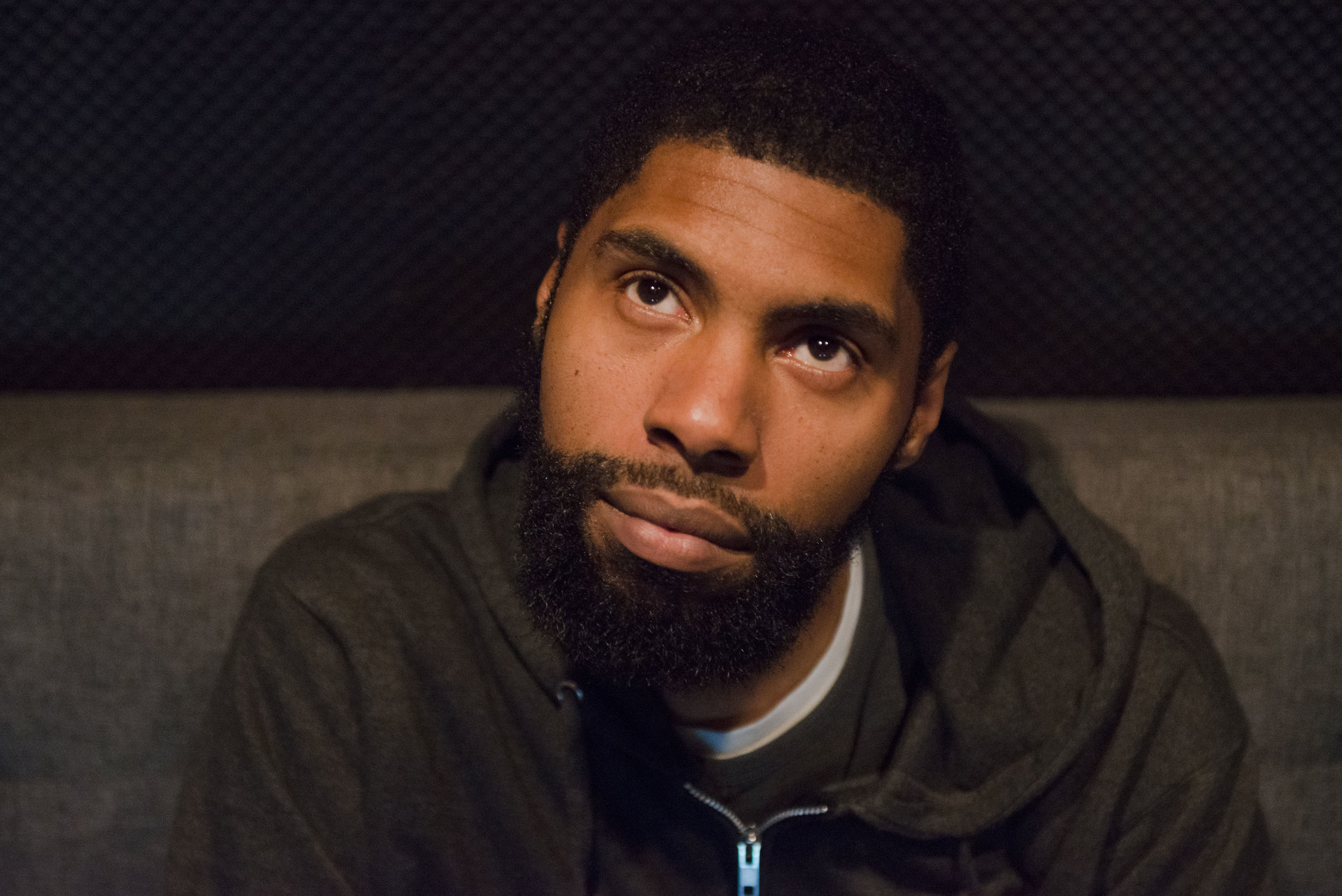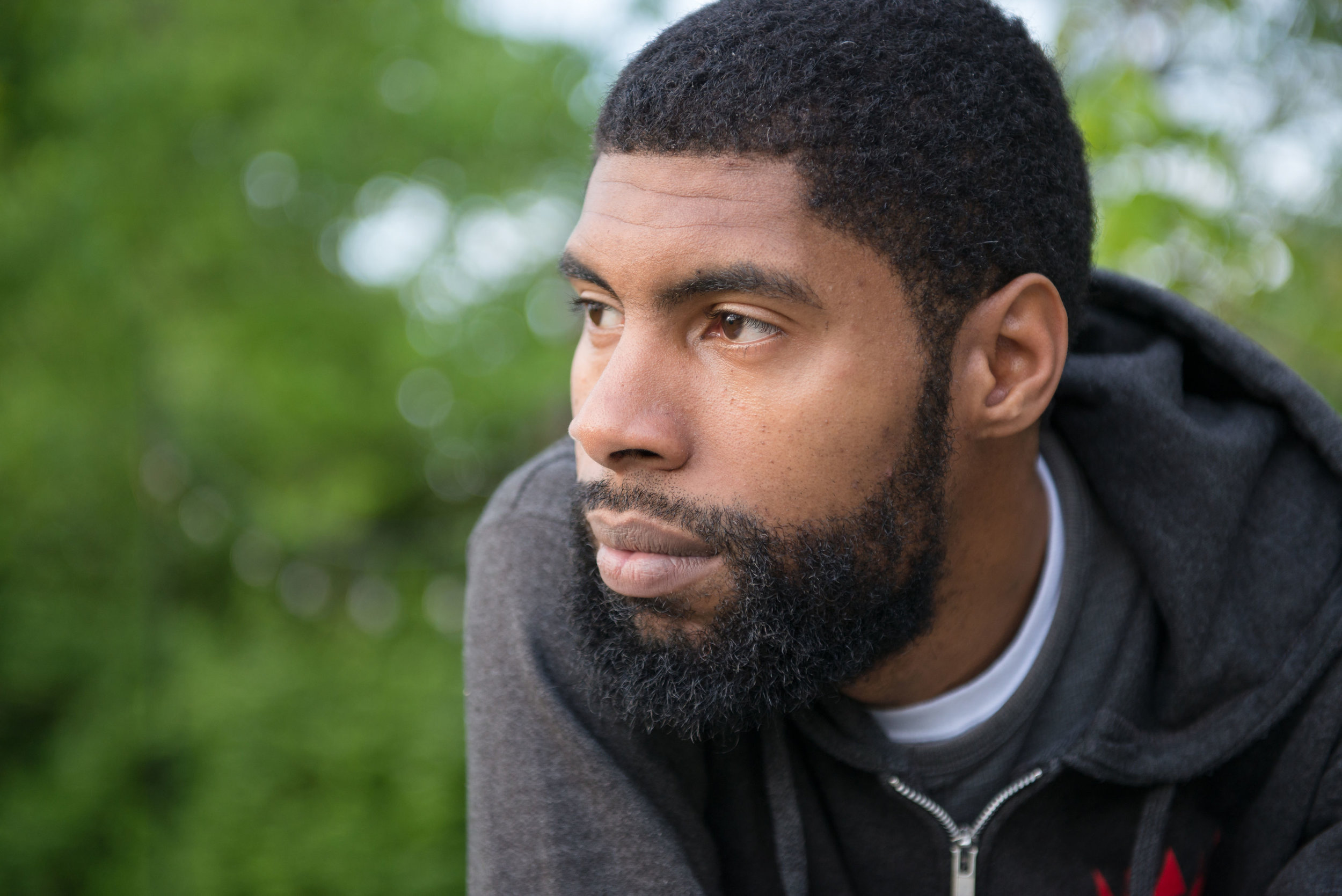Good (Man)ners: Kick Lee on Ending the Starving Artist
Good (Man)ners is devoted to male-identifying dudes who share our belief that when you uplift women, you uplift everyone. Read on to hear from Cincinnatians who take allyship to heart.
Writing for Women of Cincy has given me the opportunity to meet and share stories with influencers and change-makers throughout Cincinnati. I usually walk away from my interviews feeling inspired, but Kick Lee is quite possibly the coolest person I never knew I needed to meet. He’s created a career and a lifestyle based around helping others achieve their dreams. As the founder of the Cincinnati Music Accelerator, he’s helping local musicians realize their worth as artists and discover how to take control of their own careers. Kick uses his energy to build up the community instead of creating competition between artists. Coming from humble beginnings in the foster system, he learned to overcome adversity and see the positive in the world. He’s building community and turning Cincinnati into a music city.
Interview by Abbey Bruce. Photography by Stacy Wegley.
Tell me who Kick is.
Kick is a lot of things, to be honest. Man, where do I begin? I guess I could start with “Kick is a musician” – more so a music composer; music producer is the title. Activist of the music arts and lover of community. I am big about community and unity amongst the community. No matter what our background is, we are all technically one. I started out as a foster child at the age of 5. I’m 31 now.
Elementz is where I really got my big push into music. Elementz is a youth hip-hop center. They work with inner city youth and empower them to pursue their creative paths. That is where the name “Kick” actually comes from. It’s short for “Sidekick.” I started out as a volunteer, then graduated to an actual employee. They have different programs for DJing, recording, music production, visual arts, and things of that nature. I was kind of in every class just helping and trying to learn.
“Sidekick” originally came from the phone. “Lee” comes from martial arts. I did martial arts for several years. People used to mess with me and say, “Oh, look at Bruce Leroy.” They started nicknaming me “Lee.” It was two different communities that dubbed me two different names. I kinda just merged them together, not realizing it. Even though there are different communities within the community, somehow, I brought them together and now they are one. That was encouraging and enlightening to me to continue the mission of helping my community through the art of music. I guess that is just a little bit of Kick… because it is a lot. [Laughs.]
Tell me about the Cincinnati Music Accelerator.
I always felt that musicians didn’t know the business side. That was something as a musician and composer that I struggled with. How do I compensate myself and pay my taxes? How do I make it to that next level as an entity? I started asking people if there were any programs or solutions out there. I wanted to be part of the solution instead of part of the problem. I found out about People’s Liberty through some community friends. They said, “This may work out for you. Try it out.” I applied and was awarded the program grant. I got the $10,000 and coined the name “Cincinnati Music Accelerator.”
They all have the same story: “There’s nothing in Cincinnati, so I came to L.A.” I wanted to be part of the solution to that problem.
Our focus is educating musicians on entrepreneurship. We teach different things, from entertainment law, marketing and branding, business finance, content management, press and media. Booking and management is another piece. Finding your own gigs, but also managing yourself, as well. Some people think that they need a manager, but they don’t have anything to manage yet.
How many artists do you have going through the accelerator now?
We’ve officially graduated 20 individuals. We were trying to do it quarterly, but we’ve had so many people coming to us, instead of enlarging the classes, I said, “Why don’t we just add more classes?” So we are now a monthly program. We start them the second week of each month up until September and then we take a break for the rest of the year. We come back in February and reboot.
Do you have a lot of people on staff to help you out or is it volunteer?
We are all volunteers. Even I’m still a volunteer. I don’t feel like we are quite yet at the level where I or anyone else can be compensated. Plus, it gives us a cool mission. Like I said, we are working to educate musicians through entrepreneurships. Our tagline is: “We are working to put an end to starving artists.” We’re doing some cool stuff that is just different for our community. Especially since we now provide our graduates as talent for events and they get compensated. I will not book or have a conversation if there is no budget type, because musicians deserve to be paid in some form or fashion. It doesn’t always have to be monetary. It can be like, you know, “I have a print shop and I wanna print some apparel and stuff for you.” That works. As long as it’s something that helps them grow, we’re all for that.
How did you get into the music industry?
I was always in music, but I was creatively in it. I knew the right people. I got different opportunities from different people. Honestly, my biggest accomplishment to date is having a piece of my music used – it’s called “Call on Me”; it’s available on Spotify – in the winter Olympics campaign for Toyota in 2018. That was a huge accomplishment. I just burst out in tears. I don’t really cry a lot, but this was a big deal. Toyota, Samsung, L.G. – I still work with all of them to this day. But yeah… It just kind of came to me. I always tell people that my success is due to the people around me.
What makes the music scene in Cincinnati unique?
We have various genres of music. Especially with Kentucky there, it merges together. We have so many creatives, and so many artists that are into music and want to be in music. Heck, if you go to L.A., you’d be surprised how many Cincinnatians are there. They all have the same story: “There’s nothing in Cincinnati, so I came to L.A.” I wanted to be part of the solution to that problem. That is what the Music Accelerator is trying to do: turn Cincinnati into a music city. We are working to build more infrastructure around the music community and create more visibility and opportunities. There are a lot of recording studios in our community, but there’s no real structure. We need to organize. There’s no real leadership that says, “This is what we have to do to move as a unit. This is what we have to do to get to that next level so we can thrive.”
[Editor's note: After our initial interview with Kick, we caught up with him about the Street Stage Project, a program the accelerator launched in May. Every day, local musicians host pop-up street performances all over the city.]
Why is Street Stage Project important to Cincinnati musicians?
It's the brainchild of [the Cincinnati Music Accelerator], and it's directly involved in our mission of putting an end to the starving artists – and we can also make our city more beautiful by filling the streets with local music. We can give musicians opportunities and an audience they might not have had before with people walking down the street going to work or with tourists who visit our city.
Tell us about the female music scene.
I feel like the female music scene is actually a lot stronger than the male music scene. I say that because there seems to be a lot of unity amongst the women in music here. They rally together and really get along. I don’t see a lot of animosity. They have the understanding that we are all trying to get to the same place and our voices matter. Actually, we [did] an event called Queens of Strings [in May 2019]. There [were] three acts: Aziza from Triiibe; Sarah Ratcliff, who is a graduate of the Music Accelerator; and Elsa Kennedy. Every time I see a woman play, there is so much more passion and emotion. The community of women in music is powerful.
[Editor’s note: Later, Lee told us future Queens of Strings events were on hold while the accelerator moves locations, but to keep an eye out for them to return to the schedule in the future.]
Who should we be listening to?
So, definitely Lauren Eylise; Triiibe is a really big one; Jess Lamb; Moonbeau; Patterns of Chaos.
What advice do you have for people trying to get into the industry?
Don’t be afraid to think what you think creatively. Don’t be afraid to express yourself. The world is so different now, especially with the internet. You can be whoever you want to be, but be you. I meet youth today that are struggling to find their identity, but you know your identity. You are searching for the wrong thing. It’s right there with you. My advice is: Be creative; be a free thinker; be considerate; be awake. As they say, be woke.
What are you most proud of?
What most people don’t realize about this studio is that I didn’t have enough money to pay the rent. The owners were nice enough to say, “We can see you really have drive. We will give you three months if you really want the space. Build it yourself; just make sure you pay us your rent.” That was three years ago. Everything you see, I built. I had a buddy who helped with the acoustics. The paneling, the lights, everything you see came from me licensing music, whether it’s on T.V. or social media. That paid for all of this. I am really proud of everything I have. I mean, coming from my background as a foster child, to go through mental, physical, emotional abuse in various ways but still be okay… Still be pushing to find awesome things to do and be encouraging to individuals and the community… Closed mouths do not get fed. That is a fact. If you really believe in something, it can get done.
For the young people coming up, what would make someone a good fit for the accelerator?
Hunger. If you are hungry, we will feed you. When we first started out, we had certain criteria we wanted, but then we had more people knocking at the door. I wanted to help those that are already here and have been working. We are now in an incubator state. We have people that are just getting into the music industry or just dipping their toes in it. We still stick with the accelerator model, but we dive into the incubator piece if they have a track record of trying. If you want it, we are here.
Tell us about an influential woman in your life.
To be honest, it really is my mother. I say this because it’s a little different. I was a foster child, and we never really got to be together like we wanted to. My mother is schizophrenic and bipolar. For those who aren’t familiar, that is a bad combination. She was never in the state to take care of me on her own. She always found a way to connect with me. She always found a way to let me know that she is still there. Even when I didn’t see her for years, she always found a way. She would send me a card, some money. Even to this day, she does things. I’ve gotten older and learned that this is her way of saying, “Sorry I wasn’t there for you.” I tell her that it’s okay and that I understand. I didn’t understand it then, but now I get it. She is the most influential woman to me because she kept going and she kept trying. She never gave up on being in touch with me. She continued to be who she is: a mom.
Know a dude with good manners? Tell us more! Good (Man)ners launches every month.






